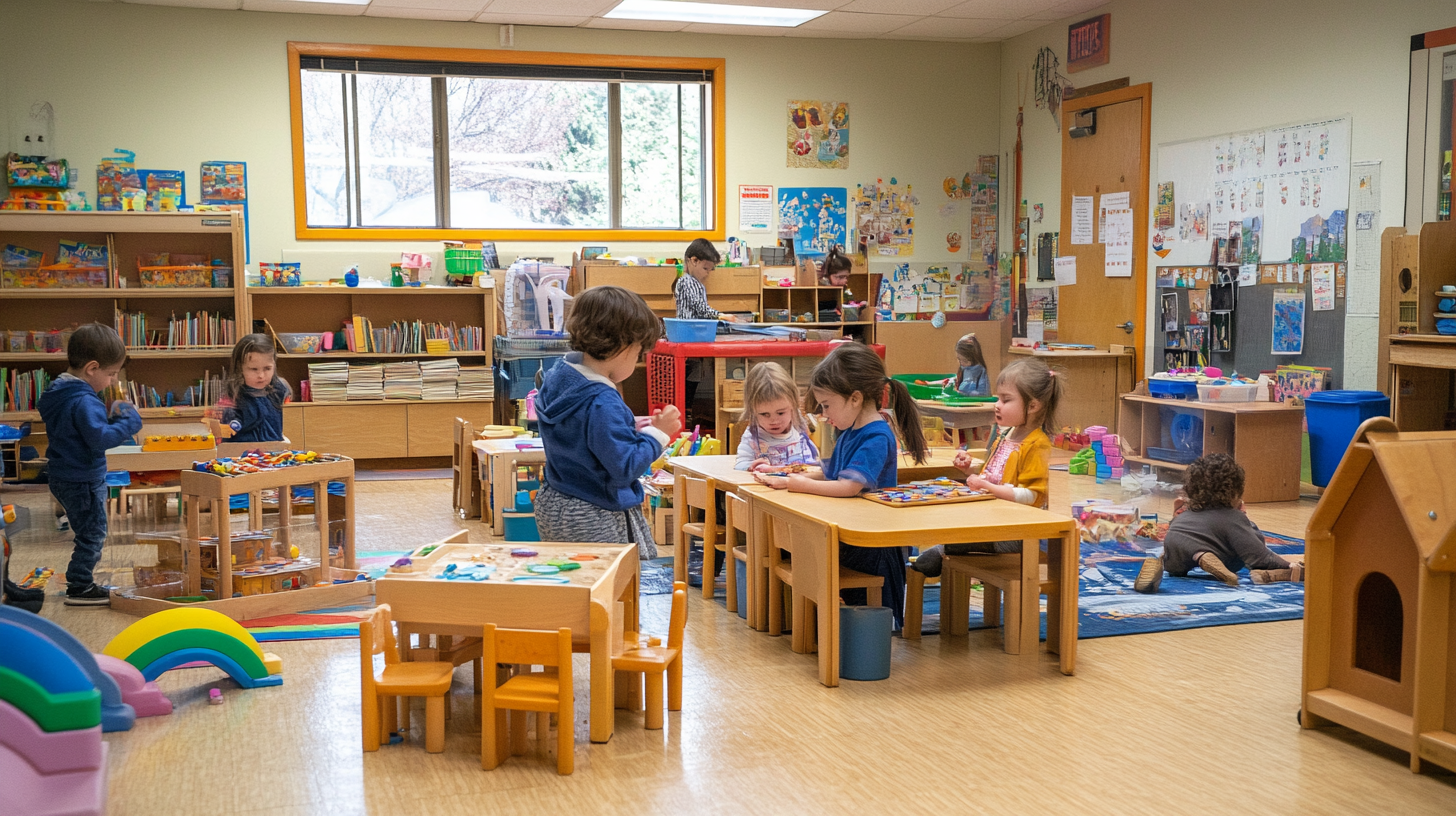In the early years of life, a child’s brain develops more rapidly than at any other time. During this critical window, experiences shape how children think, learn, and interact with the world. One of the most powerful ways to support this development? Sensory play.
At Discovery Time Learning Center, we recognize the unmatched value of sensory play in early childhood education. It’s not just about fun—it’s about laying a strong neurological foundation for future success. Whether your child is painting with their fingers, exploring a textured sensory bin, or listening to nature sounds during storytime, every moment of sensory engagement strengthens their growing brain.
Let’s explore how sensory play fuels brain development, how it aligns with key developmental milestones, and why Discovery Time Learning Center offers the optimal environment for sensory-rich learning.
What Is Sensory Play?
Sensory play refers to any activity that stimulates a child’s senses: sight, sound, touch, taste, smell, balance (vestibular), and body awareness (proprioception). Common sensory play activities include:
- Playing with sand or water
- Finger painting or drawing with chalk
- Listening to music or nature sounds
- Exploring different textures, like fabric or slime
- Playing with scented playdough or food-safe sensory materials
These activities provide children with hands-on opportunities to learn, problem-solve, communicate, and regulate their emotions. The sensory input children receive during play helps organize their brain’s responses, making future learning easier and more effective.

The Science Behind Sensory Play and Brain Development
From birth to around age five, the brain forms over one million new neural connections every second. These connections—called synapses—form in response to sensory input and experiences. The richer the experience, the more robust the connections.
Synaptic Formation and Pruning
When a child repeatedly experiences a stimulus—like the squish of playdough or the jingle of a bell—their brain strengthens the synaptic pathways related to that input. Unused connections are eventually pruned away. This means that early, varied sensory input can build stronger, more efficient brains.
Multi-Sensory Learning
Research shows that engaging multiple senses simultaneously enhances memory and learning. Sensory play does just that. When children see, touch, and talk about an object, they create more complex neural pathways than if only one sense was engaged.
Executive Function and Sensory Regulation
Sensory play also supports executive function—the mental processes used for planning, focusing, remembering instructions, and multitasking. Activities like scooping rice or threading beads require concentration, coordination, and problem-solving.
Sensory Play and Developmental Milestones
Sensory experiences fuel holistic child development, supporting:
- Cognitive Development: Categorizing textures or comparing temperatures boosts critical thinking.
- Language Development: Children naturally describe what they see, feel, and hear, growing vocabulary and communication skills.
- Motor Skill Development: Scooping, pouring, cutting, and squeezing enhance fine and gross motor control.
- Social Skills: Sharing materials and collaborating in group sensory activities foster empathy and teamwork.
- Emotional Growth: Sensory play can be soothing, helping children manage stress and practice self-regulation.
Discovery Time Learning Center: A Leader in Sensory-Based Early Learning
At Discovery Time Learning Center, sensory play isn’t an occasional activity—it’s the foundation of our approach to early education. We believe that a child’s natural curiosity is the best path to learning, and our environment is designed to nurture that curiosity through sensory exploration.
Designed for Discovery
Our classrooms and play areas are packed with developmentally appropriate materials that engage the senses. From sensory tables filled with seasonal themes to outdoor exploration gardens, every space is crafted to support sensory stimulation.
Curriculum Integration
Sensory play is integrated across our entire curriculum:
- Language Arts: Storytime with textured books or sound effects.
- Math: Measuring and sorting with beans, buttons, and rice.
- Science: Observing the properties of water, soil, or shadows.
- Art: Mixing colors, sculpting, and experimenting with materials.
Educator Expertise
Our teachers are trained in early childhood development and understand how to scaffold sensory play to maximize learning. They know how to adapt activities for different developmental levels and how to use sensory input to support each child’s unique needs.
Safe and Inclusive Materials
We use non-toxic, allergy-friendly, and culturally diverse materials to ensure every child can participate fully in sensory experiences.

How We Compare to Other Early Learning Centers
While many childcare centers offer arts and crafts, Discovery Time Learning Center goes beyond. We prioritize sensory play in a way that few programs do:
- Depth of Engagement: Sensory play is embedded in every learning domain, from literacy to math to science.
- Staff Training: Our team understands the neuroscience of play and is equipped to use it intentionally.
- Environment Design: Our spaces are purpose-built for sensory exploration, not just child supervision.
Supporting Sensory Play at Home
You can continue the sensory fun at home with simple, affordable materials. Here are a few easy ways to support your child’s brain development through play:
- Create a DIY sensory bin with dried pasta, rice, or beans.
- Let your child play with shaving cream or whipped cream on a baking tray.
- Encourage painting with fingers, sponges, or natural materials.
- Go on a nature walk and collect leaves, rocks, or pinecones.
- Incorporate music and rhythm instruments into playtime.
Rotate materials frequently to keep experiences fresh and stimulate curiosity.
Why Sensory Play Matters More Than Ever
In a fast-paced digital world, hands-on sensory play is more important than ever. While screens may capture attention, they don’t offer the tactile, auditory, and physical input needed to build strong brains. Sensory play gives children the tools to understand their world, develop resilience, and engage with others meaningfully.
When you invest in a program that prioritizes sensory development, you’re investing in your child’s capacity to think critically, relate socially, and grow emotionally.
Choose Discovery Time Learning Center for Sensory-Rich Daycare and Preschool
If you’re looking for a nurturing, brain-boosting environment for your child, Discovery Time Learning Center is the place to be. Our full-time and part-time daycare programs are packed with purpose-driven sensory play that supports every aspect of development.
Give your child the gift of joyful learning and powerful brain development.
Contact Discovery Time Learning Center today to schedule a tour or enroll in one of our sensory-rich programs!
Let’s build strong minds—one sensory experience at a time.



